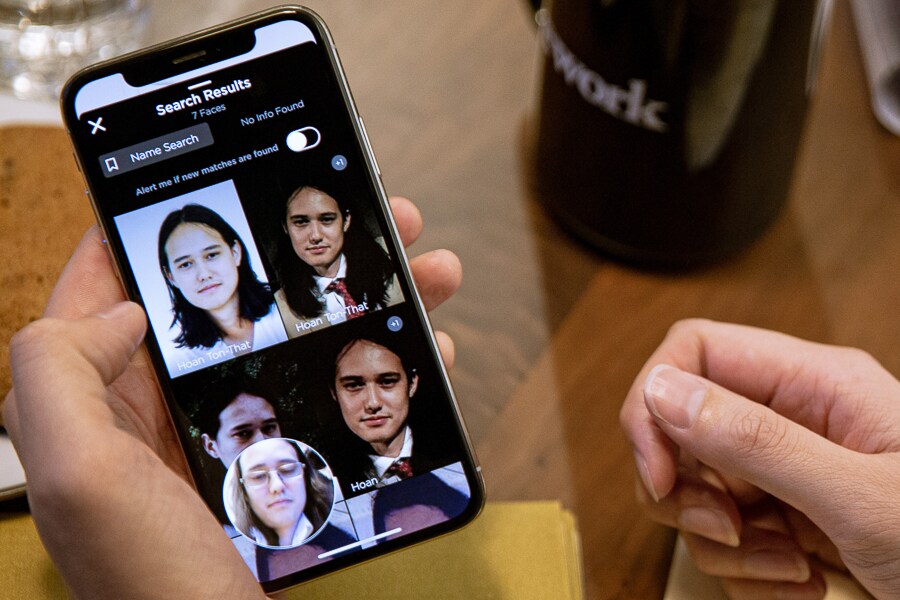
Facebook is shutting down facial recognition system after a decade
Facebook plans to shut down its decade-old facial recognition system this month, deleting the face scan data of more than 1 billion users and effectively eliminating a feature that has fuelled privacy concerns, government investigations, a class-action lawsuit and regulatory woes
 A facial recognition app on a smartphone in New York, Aug. 1, 2019. Facebook plans to shut down its decade-old facial recognition system this month, deleting the face scan data of more than 1 billion users and effectively eliminating a feature that has fueled privacy concerns, government investigations, a class-action lawsuit and regulatory woes.
A facial recognition app on a smartphone in New York, Aug. 1, 2019. Facebook plans to shut down its decade-old facial recognition system this month, deleting the face scan data of more than 1 billion users and effectively eliminating a feature that has fueled privacy concerns, government investigations, a class-action lawsuit and regulatory woes.
Image: Amr Alfiky/The New York Times
Facebook plans to shut down its decade-old facial recognition system this month, deleting the face scan data of more than 1 billion users and effectively eliminating a feature that has fueled privacy concerns, government investigations, a class-action lawsuit and regulatory woes.
Jerome Pesenti, vice president of artificial intelligence at Meta, Facebook’s newly named parent company, said in a blog post Tuesday that the social network was making the change because of “the many concerns about the place of facial recognition technology in society.” He added that the company still saw the software as a powerful tool, but “every new technology brings with it potential for both benefit and concern, and we want to find the right balance.”
The decision shutters a feature that was introduced in December 2010 so that Facebook users could save time. The facial recognition software automatically identified people who appeared in users’ digital photo albums and suggested users “tag” them all with a click, linking their accounts to the images. Facebook now has built one of the largest repositories of digital photos in the world, partly thanks to this software.
Facial recognition technology, which has advanced in accuracy and power in recent years, has increasingly been the focus of debate because of how it can be misused by governments, law enforcement and companies. In China, authorities use the capabilities to track and control the Uyghurs, a largely Muslim minority. In the United States, law enforcement has turned to the software to aid policing, leading to fears of overreach and mistaken arrests. Some cities and states have banned or limited the technology to prevent potential abuse.
Facebook only used its facial recognition capabilities on its own site and did not sell its software to third parties. Even so, the feature became a privacy and regulatory headache for the company. Privacy advocates repeatedly raised questions about how much facial data Facebook had amassed and what the company could do with such information. Images of faces that are found on social networks can be used by startups and other entities to train facial recognition software.
©2019 New York Times News Service




